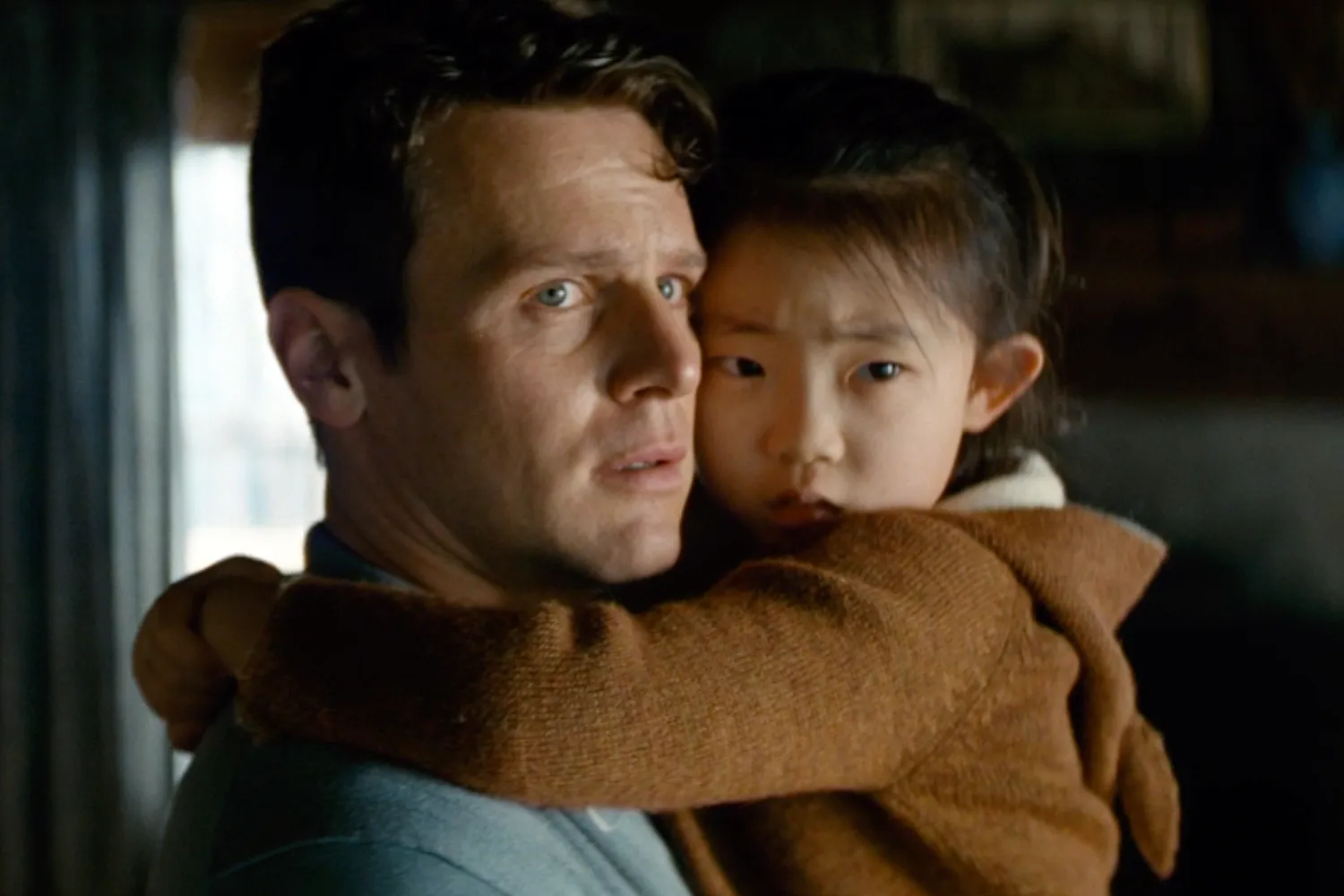Film Review: Knock at the Cabin
Film Reviews
Knock at the Cabin
Director: M. Night Shyamalan
In Theaters: 02.03
Universal Pictures
Knock at the Cabin’s central family—Eric (Ben Aldridge), Andrew (Jonathan Groff) and their adopted daughter, Wen (Kristen Cui)—appear to us idyllic. Deviating from a heteronormative idea of the nuclear family has left them with internal and external scars, but the tough journey has made their familial bond stronger than any easy rider could imagine. M. Night Shyamalan, contemporary Hollywood’s greatest fabulist and sentimentalist, turns the family’s hard-won happiness into a moral quandary: While on a getaway to the remote, titular cabin (inside of which the entire movie is masterfully filmed), the power of this trio’s love becomes the only possible savior for a questionably real global apocalypse. Like cursed Greek heroes, one must die at the hands of the other to save humanity.
Shymalan’s restless camera work is full of rapid shifts in hard focus, extreme close ups and jump cuts between the past and present that make us claustrophobic victims of the cabin’s mania. We’re here with Eric, Andrew and Wen; the distant, outside world is only suggested through news broadcasts that could be deep faked or taped. The four disciples (played by Abby Quinn, Rupert Grint, Nikki Amuka-Bird and Dave Bautista) sent to tell Eric and Andrew of their fate teeter between sympathetic and villainous, further complicating whether we (and by extension, the cabin family) should believe anything occurring. The eventual uncovering of the quartet’s grandiose, metaphoric purpose as both people and pawns douses the whole film in delicious, melodramatic irony.
Knock at the Cabin’s suspense—of being cut off from technology, unable to label the digital world as “real” and feeling increasingly unsure of your own physicality—scratches a timely itch. Shyalaman has always toyed with the infected boil of modern anxiety: Signs and The Village built their anxieties off of the fear of the other, of the unknown threat and the lure of insularity; Old arrived to an American public who had just collectively faced the messy, unstable limits of the human body. Knock at the Cabin is for those who lay half-awake at night dreaming of climate collapse, who feel their grip on reality loosening as their hands tighten around smartphones, who shudder at the growing presence of organized, self-convinced religious fanatics.
Knock at the Cabin unravels the nature of contemporary violence, specifically the polar characteristics of harm. Here, violence is both targeted and random, base and cosmic. Flashbacks reveal that Andrew suffered a homophobic hate crime some years ago at the hands of—in a sick coincidence—one of his current kidnappers. This means both everything and nothing. The weight of this past trauma burdens the narrative but also doesn’t explain the family’s current position as sacrificial lambs for the salvation of humanity. Fate is fate, and Knock at the Cabin hinges on the anxiety that the universe is blind to the social terror we’ve created, unprejudiced in its judging and its choice of martyrs.
Knock at the Cabin’s apocalypse doesn’t ask us to forget the horrors of America in face of the random, biblical doom. That one family can endure suffering at both a human and godlike level is a disturbing, tragic joke, a six-legged metaphor for the turmoil of being a human in this country as effective as anything in the director’s career. At the core of the mystery, the visual discombobulation and the fatalistic reckoning exist simple maxims—God is alive but cruel, society is an unstable bomb, love conquers all. Plenty of films lay bare harrowing truths through realism and muted drama; Shyamalan creates bold, new moral tales of anxious fantasy. Here is the next chapter in the Great American Myth, warts and all. –Audrey Lockie
